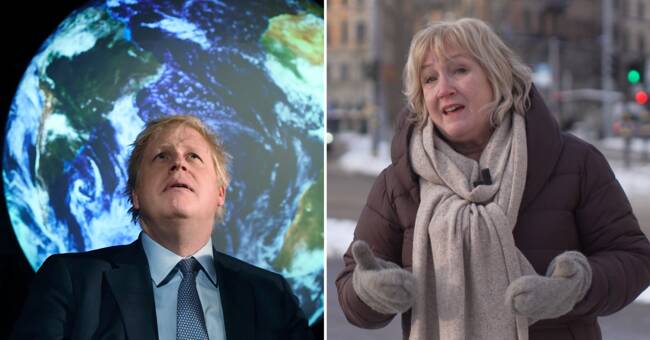Brexit is often described as a problem, but when it comes to the climate crisis, it can have its benefits.
Thanks to Brexit, the British can declare the internal combustion engine dead without EU bureaucrats running around with sticks.
The UK has decided to ban the sale of petrol and diesel cars as early as 2030. The business community likes clear rules of the game and now there is no doubt.
It is a signal to car manufacturers to leave the brown world and enter the green.
In Sweden, Volvo Cars' CEO attracted attention when he advocated a similar ban on petrol and diesel cars in Sweden.
A Swedish state investigation is currently investigating whether it would work, but according to information to SVT, obstacles have been encountered.
Going ahead of the EU with a ban on petrol cars would be classified as a "technology ban" and it is not allowed under the laws governing the EU's internal market.
The climate plan is launched in several stages
Boris Johnson has big ambitions.
London will become a global, green financial center and he promises to create 250,000 new green jobs.
British homes must be heat insulated.
The proportion of wind turbines will quadruple by 2030. With installations of 40 GW in offshore wind farms, every household in the country will be provided with wind power.
The British climate plan is launched in several stages.
The first came in November, a ten-point program to ensure that Britain fulfills its promise under the Paris Agreement, zero emissions by 2050. What makes the plan the most ambitious in Europe is the rapid timetable.
By 2030, the British will have reduced their emissions by 68 percent.
The EU's and Sweden's intermediate targets are 55 percent by 2030.
The usually critical environmental analysts agree that the British government's ambition is high, although several point out that the government has allocated too little new money.
Far greater investments are needed for, among other things, public transport in order for the goals to be realistic.
Greenpeace wants to see more economic instruments.
“Aviation is difficult to transform into a climate-friendly means of transport.
We know that 15 percent of Britons account for 70 percent of all flying, we think it is reasonable that the more you fly, the higher tax you have to pay ".
This is what Greenpeace's head of policy Doug Barr says to SVT, a proposal that has received broad political support.
The coal is almost completely decommissioned
Most debated in the ten-point plan is a new investment in small-scale nuclear power plants.
The governing party Tory and Labor agree that the goal of zero emissions by 2050 cannot be achieved without nuclear power.
Carmaker Rolls Royce has received £ 215 million in development grants for the new generation of small-scale reactors.
Jonathon Porritt, climate debater and former climate adviser to Tony Blair and Prince Charles, writes in an article that "the arguments against nuclear power are so many that it is difficult to know where to start", he lists unresolved storage problems, the risk of terrorist attacks and nuclear arms race as three of the heaviest objections.
But even now the British can show results.
The coal is decomposed at a much faster rate than planned.
In just ten years, coal power has gone from accounting for 40 percent of the country's electricity supply to supplying only 1.5 percent.
In the new UK, neither coal nor the petrol engine have a future.

